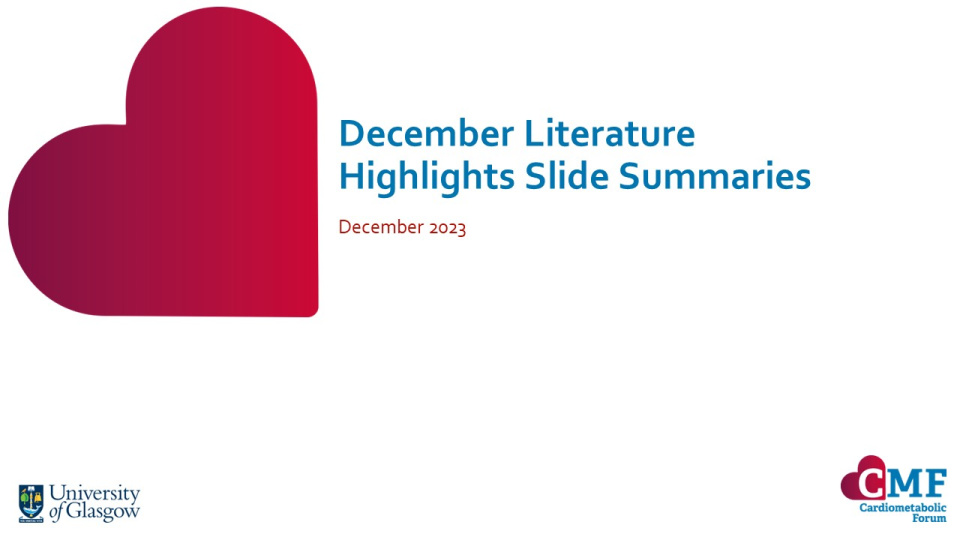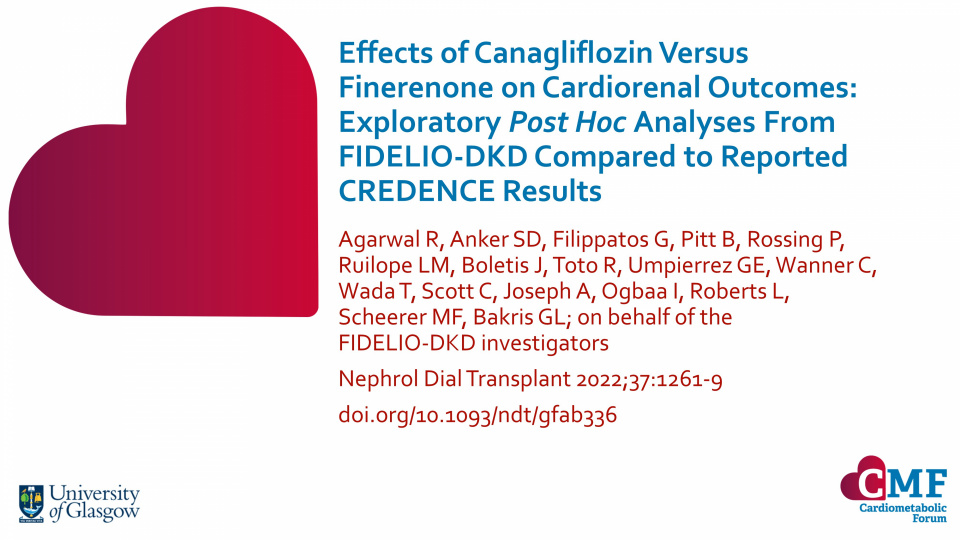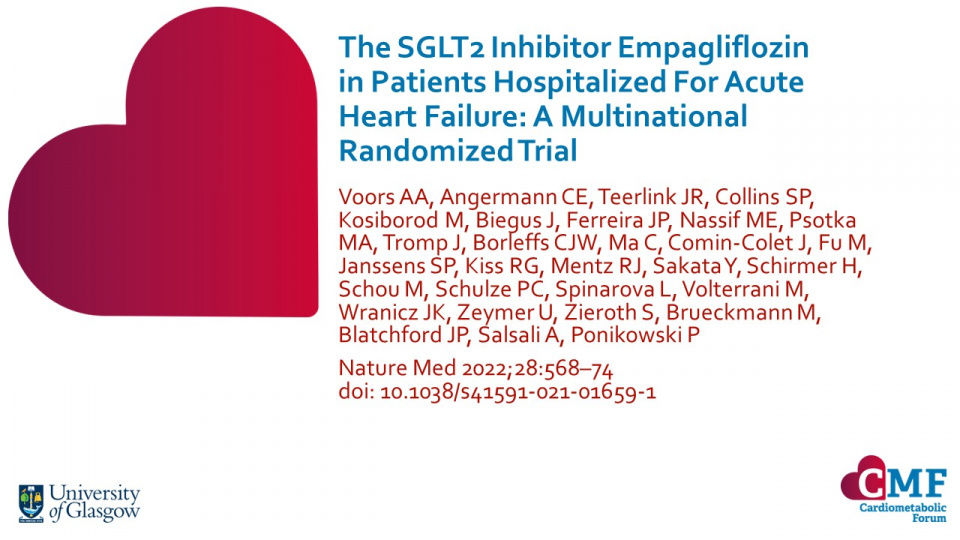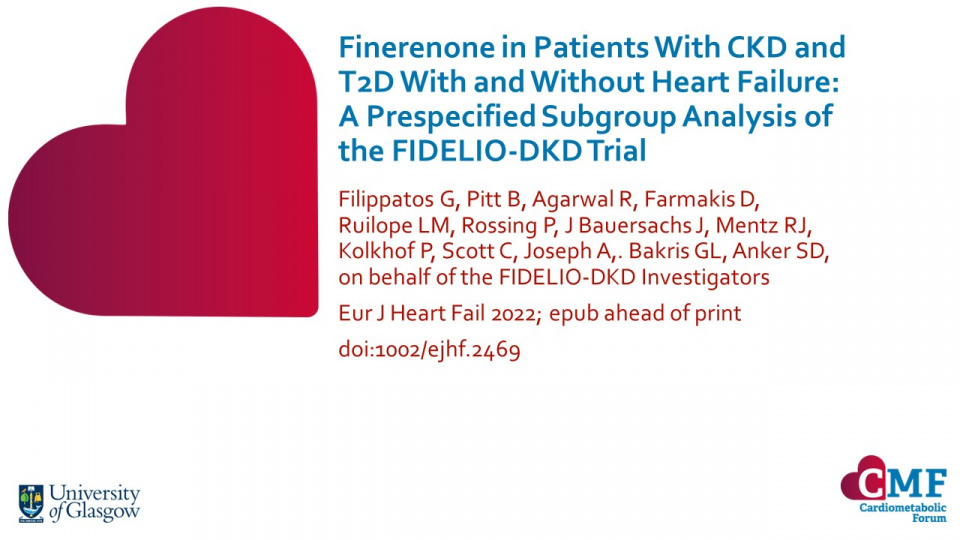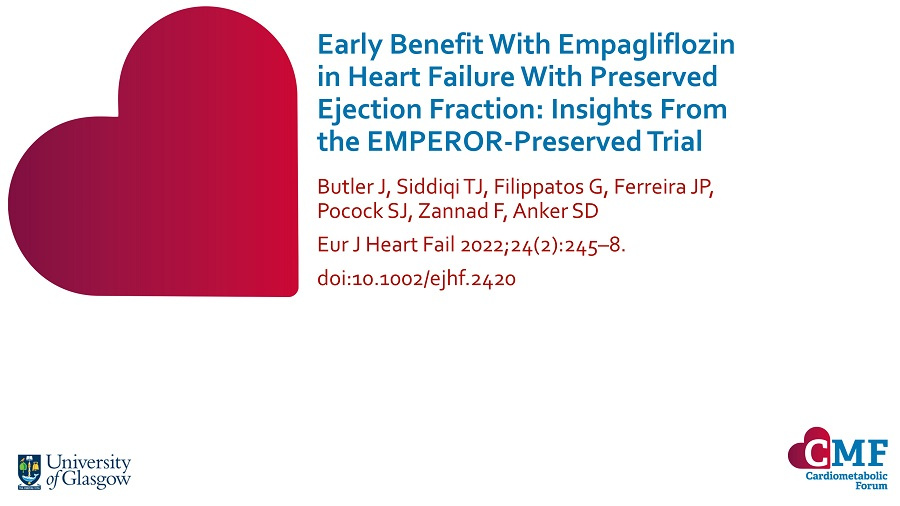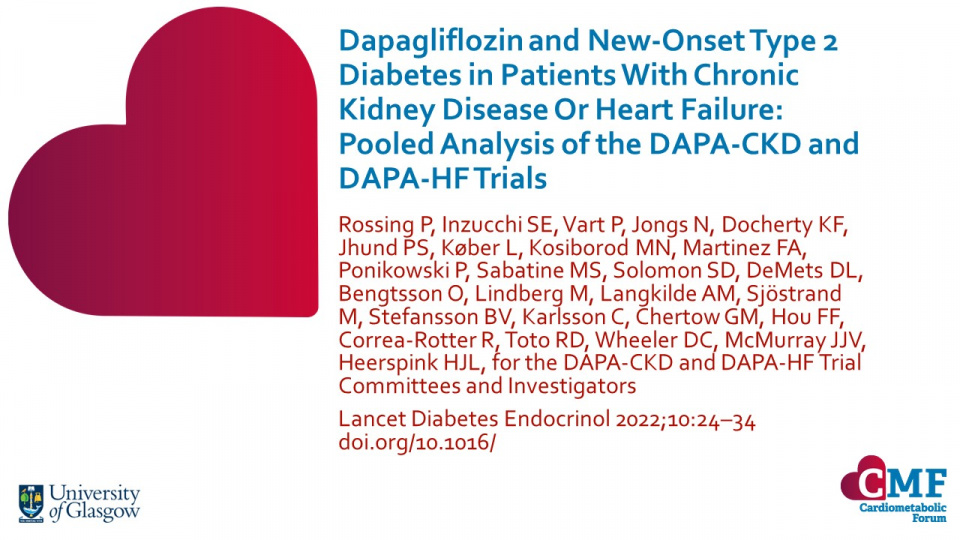Publications
Stay up to date with our literature reviews which are curated by experts to feature the most important publications released each month. Explore our publications for access to concise summary slides for your own use.
Effects of Canagliflozin Versus Finerenone on Cardiorenal Outcomes: Exploratory Post Hoc Analyses From FIDELIO-DKD Compared to Reported CREDENCE Results
Nephrol Dial Transplant 2022;37:1261-9 doi.org/10.1093/ndt/gfab336
This analysis highlights the pitfalls of direct comparisons between trials, since when key differences in design are considered, FIDELIO-DKD and CREDENCE demonstrate similar cardiorenal benefits. The authors conclude that both canagliflozin and finerenone are similarly effective in reducing the risk of cardiorenal outcomes.
The SGLT2 Inhibitor Empagliflozin in Patients Hospitalized For Acute Heart Failure: A Multinational Randomized Trial
Nature Med 2022;28:568–74 doi: 10.1038/s41591-021-01659-1
Empagliflozin is well tolerated in patients hospitalised for acute heart failure, resulting in significant clinical benefit 90 days after treatment initiation.
Finerenone in patients with CKD and T2D with and without heart failure: A prespecified subgroup analysis of the FIDELIO-DKD trial
PMID: 35239204 DOI: 10.1002/ejhf.2469
This subgroup analysis of the FIDELIO-DKD trial discovered that finerenone improved cardiorenal outcome in patients with chronic kidney disease and type 2 diabetes.
Early Benefit With Empagliflozin in Heart Failure With Preserved Ejection Fraction: Insights From the EMPEROR-Preserved Trial
Eur J Heart Fail 2022;24(2):245–8. doi:10.1002/ejhf.2420
Results reinforce sustained clinical, health status and quality of life benefits with empagliflozin in patients with HF‑pEF, and underscore the need for timely initiation of therapy.
Dapagliflozin and New-Onset Type 2 Diabetes in Patients With Chronic Kidney Disease Or Heart Failure: Pooled Analysis of the DAPA-CKD and DAPA-HF Trials
Lancet Diabetes Endocrinol 2022;10:24–34 doi.org/10.1016/
Chronic kidney disease and heart failure are insulin resistant states associated with high incidence rates of diabetes. Rossing et al. carried out a two Phase 3, randomised, double-blind, placebo-controlled trials assessed the effect of dapagliflozin on new-onset type 2 diabetes, in a pooled analysis of data from 6,608 individuals.

